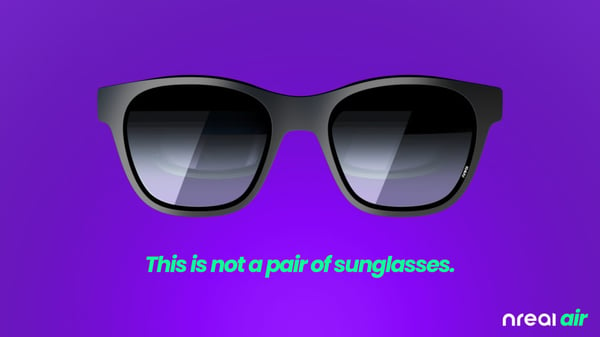Does augmented reality reduce eCommerce returns? ARtillery took a look on that.
Also, Nreal announced new AR glasses. Read on!
Does AR really reduce returns?
Immersive shopping is proving to have an experiential impact on consumers and revenue impact for brands. Immersive shopping is when AR is used to visualize and contextualize products to incite more informed purchases.
ARtillery Intelligence produced a report to dive into camera commerce.
According to the report, AR visualizations indeed reduce returns. For example, Shopify reports a 40 per cent decrease in returns from 3D visualization, SeekXR reports a 25 per cent decrease, and Macy's in-store VR reduced returns to less than 2 per cent, versus industry-standard retail return rates of 5-7 per cent.
A notable aspect of the report's data is AR's consistency in reducing return rates for various product categories. In all cases studied, AR proves its ability to improve margins and demonstrate a real business benefit.
AR visualization gives consumers a better sense of size, colour and dimension, so products are proving less likely to be returned. Many e-tailers welcome this new tool, as returns can cause quite a bottom-line blow.
The "informed purchase" through AR drives conversions and lessens return rates through a better sense of style and fit.
The Nreal Air AR smart glasses can simulate a massive 201-inch with a refresh rate of 90Hz
Nreal has announced a new set of consumer AR sunglasses centred around convenience and comfort. The company claims that consumers can wear the Nreal Air all day comfortably - whether business or pleasure.
In addition to solo activities, Nreal Air allows you to create a shared digital space and invite other Nreal Air users to join. Here you can collaborate with coworkers or watch content with friends in the virtual theatre, no matter where in the world either of you is.
The Nreal Air can project a massive 130-inch hi-res virtual display when viewing the screen at a simulated distance of 3 meters, or a 201-inch screen featuring an impressive refresh rate of 90Hz from 6 meters.
The glasses require a tethered smartphone to run - either an iOS or Android device.
"Consumers today are seeking lighter, but longer-lasting AR glasses exclusively for streaming media and working from home. For instance, in Korea, we've found that 78% of our users use Nreal Light to watch streaming content." Xu adds, "Nreal Air builds on our Nreal Light offering and furthers our mission to spread AR globally. With Nreal Air, we've zeroed in on the perks of a portable movie theater and condensed this into lightweight AR sunglasses with a zero-footprint display, while making it affordable," Chi Xu, Founder of Nreal, said in an official press release.
Nreal plans on launching their Nreal Air AR sunglasses in December 2021 in three key Asian markets and rolls out to other markets through 2022.
That's all for now, see you next time!



